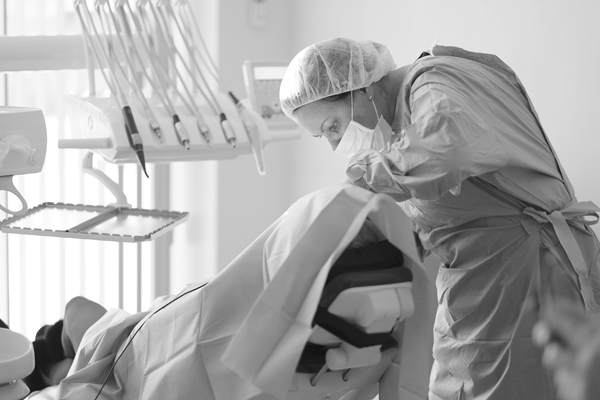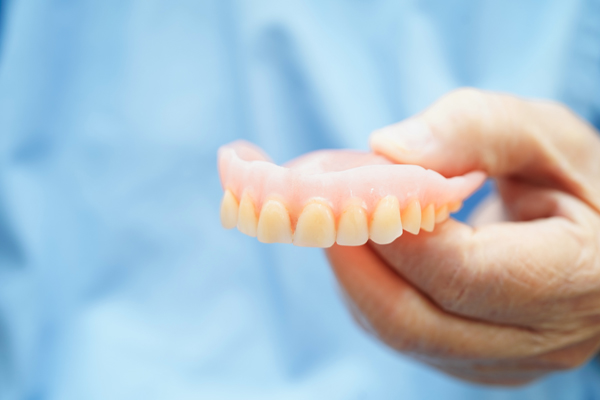Does Wisdom Tooth Extraction Require Invasive Surgery?
In modern society, it is almost a rite of passage to have a as a young adult. Wisdom teeth, the final, permanent molars located in the very back of the mouth, can actually cause problems for many patients if they are not removed. Fortunately, in most cases, the procedure is minimally invasive and does not require extensive healing time.
When does a dentist consider wisdom tooth extraction?
Wisdom teeth that are unable to erupt are referred to as “impacted.” Impacted teeth can lead to a host of dental problems, including infection, pain at the site of the impaction, bleeding gums, jaw pain, and difficulty opening the mouth. To avoid these potential issues, many dental professionals prefer to take out these molars even if they are not currently causing problems for the patient in question. Wisdom teeth can additionally crowd the other teeth and even cause shifting in a patient’s formerly perfect smile.
How does a specialized dentist extract wisdom teeth?
A dentist can explain to the patient the need for having wisdom teeth extracted. Perhaps the teeth are impacted, or maybe the dentist wants to prevent future problems in a patient with a small mouth by removing the wisdom teeth while the patient is still an adolescent, before the bones harden, which would make the procedure more difficult for a patient as an older adult.
Before the extraction
The dental professional begins by going over the plan for extraction. For most patients, this procedure is no different than having any other tooth pulled. The exception is that these large molars sit in the very back of the mouth, which requires the patient to sit in an uncomfortable position for a while.
During the extraction
For wisdom teeth that have already erupted from the gums, the dental professional simply rocks the teeth from side to side and pulls gently with specialized equipment. This is similar to removing any other tooth. The patient may feel some pressure when the tooth is being removed. If the teeth have not yet erupted, the dentist may make a small slit in the gum in order to access the tooth underneath the gum.
After the extraction
Patients will receive instructions to avoid several activities after the removal, such as swishing with liquids, smoking, and drinking hot beverages. Every patient’s plan of care is slightly different due to unique factors in their cases. For instance, if a patient received stitches after having an incision to extract an impacted tooth, caution may be needed in eating and drinking specific foods for a longer period of time.
Conclusion
For most healthy patients, wisdom tooth extraction is a common, minimally invasive procedure that results in few complications and prevents future dental problems. If you still have wisdom teeth as an adult, it is not too late to investigate whether extraction would be beneficial. Schedule a consultation with our experienced dental team.
Request an appointment here: https://www.ismileteam.com or call iSmile Dental Team PC at (267) 515-6162 for an appointment in our Philadelphia office.
Check out what others are saying about our dental services on Yelp: .
Recent Posts
A wisdom tooth extraction is a popular procedure that most people are familiar with. However, as with most popular knowledge, not everything people believe is true, and that includes beliefs about removing wisdom teeth. Debunking these myths is important as they could be prohibiting individuals from getting the procedure that is necessary to maintain good…
Are you looking for aftercare tips for your upcoming wisdom teeth extraction? You may have heard some horror stories from friends or family, but do not worry. Being proactive and learning the best aftercare methods can significantly reduce pain and discomfort.While your dentist will likely give you some guidelines for after the surgery, it does…
The patient does not feel any discomfort during wisdom teeth extraction, but there is a recovery period after treatment. It is important to follow proper aftercare instructions to reduce the risk of an oral infection, recover faster and keep pain, swelling and bleeding to a minimal level.After wisdom tooth extraction, patients should follow all the…
Call us for more details on wisdom teeth extractions and the overall procedure.Among the milestones you reach in life from your first steps to learning to drive, wisdom teeth extractions may be necessary. While the process may not sound appealing, it can provide immediate relief and prevent further oral health issues. We can help to…


